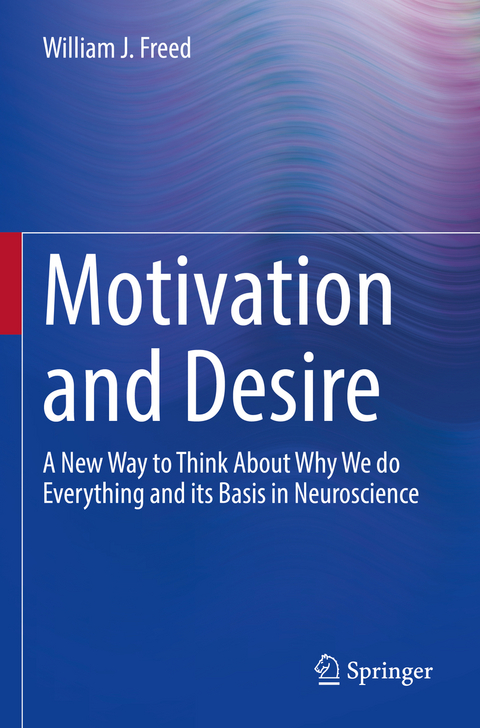
Motivation and Desire
Springer International Publishing (Verlag)
978-3-031-10479-4 (ISBN)
This book places our various activities into categories, thus providing a framework for understanding how everything that we do fits together and is based on brain mechanisms. Disturbances in motivation play important roles in autism, depression, Parkinson's disease, and addiction. Understanding the motivational aspects of these disorders can help to inform our approach to these conditions. This book may be of value for students in psychology, counseling, management, andanyone who is interested in understanding our daily behavior.
lt;p>William Freed, obtained his bachelors degree from Rutgers University and attended graduate school at the University of Kansas, where he obtained Master's and Ph.D. degrees working with Joseph Mendelson and Elias K. Michaelis. During graduate school he gained experience in the neuroscience of motivation with Dr. Mendelson and neuropharmacology and biochemistry with Dr. Michaelis. After completing a Ph.D. he worked as a scientist at the National Institutes of Health (NIH) Intramural Research Program, at the National Institute of Mental Health (NIMH) from 1977 to 1997 and at the National Institute on Drug Abuse from 1997 to 2015. While working at the NIMH, he was one of the scientists who performed the first studies showing that cells could be transplanted into the brain to improve motor function in animal models of Parkinson's disease. At the NIH he also worked on several additional topics including cell adhesion molecules in mental illness, development of techniques for modifying cells in vitro, development of in vitro stem cell model systems, and production of dopamine neurons from human embryonic stem cells. During the years prior to retirement his work focused on understanding how cocaine interferes with development of the human brain. He currently maintains a position of Adjunct Professor in the Department of Biology, Lebanon Valley College, Annville, Pennsylvania and is a Fellow Emeritus in the American College of Neuropsychopharmacology and the American Society for Neural Therapy and Repair.
Introduction.- PART I: A Classification Scheme for Motivation.- Chapter 1: Reward, Punishment, Desire, Pleasure, and Terminology.- Chapter 2: A Classification Scheme.- Chapter 3: Type A Motivation: Biological Needs.- Chapter 4: Type B or Social Motivation.- Chapter 5: Type C Motivation: Growth and Development of Cerebral Organization.- Chapter 6: Long-Term Executive Function.- Chapter 7: Relevant Concepts from Motivational Psychology.- Chapter 8: Altruism.- Chapter 9: Are Different People Motivated Differently?.- PART II: Brain Mechanisms and Disorders.- Chapter 10: Biology of motivation, dopamine, and brain circuits that mediate pleasure.- Chapter 11: What Electrical Stimulation of the Brain Tells Us About Motivation.- Chapter 12: How the Brain Signals Reward.- Chapter 13: Type C Motivation in Rats.- Chapter 14: Type C Motivation in Humans.- Chapter 15: Brain Mechanisms Related to Social and Reproductive Behavior.- Chapter 16: Parkinson's Disease.- Chapter 17: Addiction.- Chapter 18: Depression and Other Forms of Mental Illness.- Chapter 19: Conclusions.
| Erscheinungsdatum | 05.09.2023 |
|---|---|
| Zusatzinfo | XXIII, 219 p. 28 illus., 18 illus. in color. |
| Verlagsort | Cham |
| Sprache | englisch |
| Maße | 155 x 235 mm |
| Gewicht | 375 g |
| Themenwelt | Geisteswissenschaften ► Psychologie ► Pädagogische Psychologie |
| Schlagworte | Cognitive Psychology • Executive Function • Motivation • Motivation and desire • Neuropsychology |
| ISBN-10 | 3-031-10479-X / 303110479X |
| ISBN-13 | 978-3-031-10479-4 / 9783031104794 |
| Zustand | Neuware |
| Haben Sie eine Frage zum Produkt? |
aus dem Bereich


